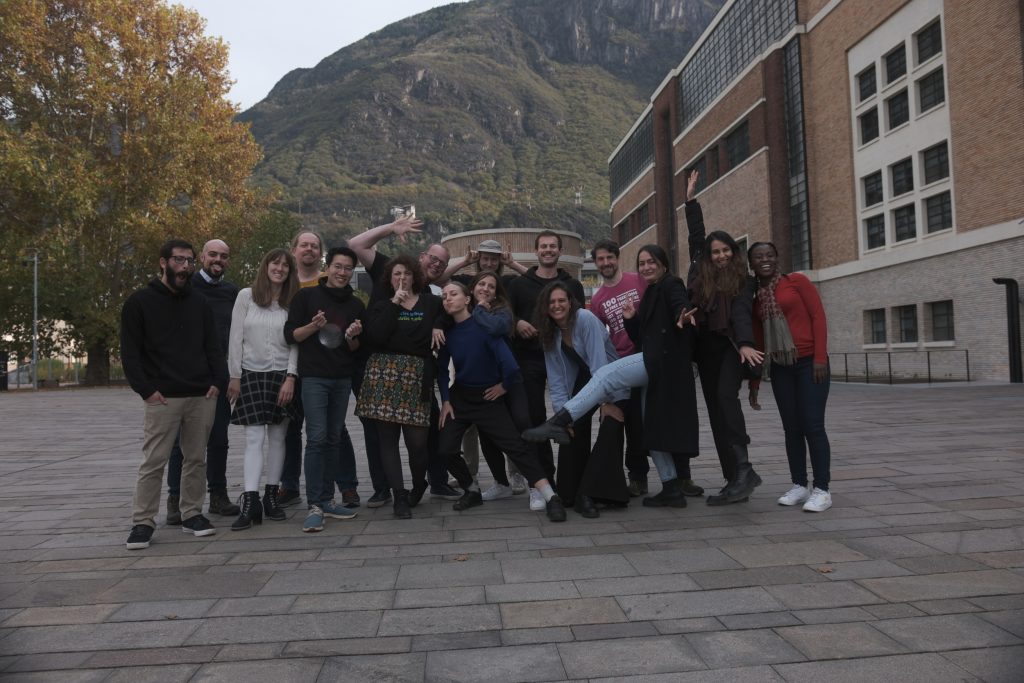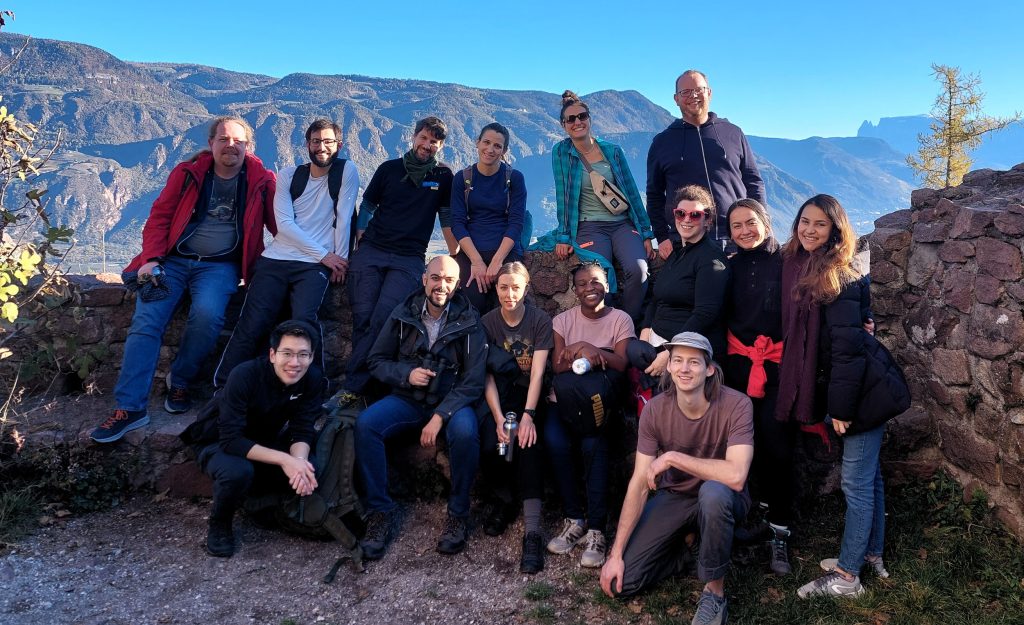Member in the Spotlight: Free Software Foundation Europe
Free Software Foundation Europe is a charity that empowers users to control technology. Software is deeply involved in all aspects of our lives. Free Software gives everybody the rights to use, understand, adapt, and share software. These rights help support other fundamental rights like freedom of speech, freedom of press, and privacy.
This is the 23rd article of the series “EDRi member in the Spotlight“, in which our members have the opportunity to present themselves and their work in depth.
Today we get to know more about the Free Software Foundation Europe (FSFE), which has been part of the EDRi network as a member since 2018.

Free Software Foundation Europe Q&A
-
Who are you and what is your organization’s goal and mission?
The Free Software Foundation Europe (FSFE) is a charity that empowers users to control technology. Software is deeply involved in all aspects of our lives, and it is important that technology empowers rather than restricts us. Free Software gives everybody the rights to use, understand, adapt, and share software. These rights help support other fundamental freedoms like freedom of speech, press, and privacy.
The FSFE helps individuals and organisations to understand how Free Software contributes to freedom, transparency, and self-determination. It enhances users’ rights by abolishing barriers to Free Software adoption, encouraging people to use and develop Free Software, and providing resources to enable everyone to further promote Free Software in Europe.
-
How did it all begin, and how did your organisation develop its work?
The Free Software movement began in 1983 when Richard M. Stallman started the GNU Project (“GNU is Not UNIX”) to provide users with an operating system that respected the freedoms of those who used it. Two years later, in 1985, Stallman founded the Free Software Foundation to assist administrative, legal, and organisational aspects of the GNU project and also to spread the use and knowledge of Free Software. Since 1992 with the publication of Linux under the GNU GPL there is a complete operating system GNU/Linux; for which each person can use, understand, share, and improve any of the components.
In 2001, the Free Software Foundation Europe, was founded as the first FSF outside of the US. FSFE are an independent non-profit organisation and while the FSFs are working for the same goals, each organisation has its own cultural background, and is legally, financially, and operationally independent.

-
The biggest opportunity created by advancements in information and communication technology is…
Free Software! The transparency and adaptability of Free Software promotes cooperation, inclusion and empowerment. This leads us to a society with stronger democratic procedures and community spirit. Free Software always gives us four rights: everyone can freely use, understand, share and improve the software.
When software is developed under a free software licence, everyone can use it without restrictions, anytime and anywhere. Because the source code can be read by anyone, this allows for more transparency and can lead to more security. People can work together across borders on problems that affect humanity; they can share, discuss and improve the software together. Software shapes society. Free Software improves it.
-
The biggest threat created by advancements in information and communication technology is…
Proprietary software. Software is deeply involved in all aspects of our lives, and proprietary software restricts people. It is moving freedoms away from computer users. Proprietary software companies actively build mechanisms into their software to lock in the user, making it difficult to change or migrate to another company with economic, legal or incompatibility burdens.
The current lack of digital sovereignty and innovative power is also a threat to our society as governments and public administrations are cementing dependencies on individual vendors. In order to establish trustworthy and secure communication, governments need to strengthen interoperable Free Software solutions using Open Standards and enable decentralisation.
-
Which are the biggest victories/successes/achievements of your organisation?
For more than twenty years, FSFE have been actively working to educate policy makers, stakeholders and businesses about the importance of Free Software in maintaining a democratic, transparent and free society. Through education, public awareness, a strong community of Free Software advocates, and as a leading point of contact for questions and issues around software freedom, Open Standards, licensing and user rights, we work to protect and expand users’ rights to control technology.
Since its foundation, the FSFE has raised awareness about the dangers of software patents, which among other things add legal and financial risks to commercial Free Software software development. In short, software patents are harming users, developers, and society at large.
After some lighthouse projects and, of course, some failures, governments and companies increasingly understand the importance of Free Software. For example, the German CDU party, the biggest conservative party in Europe, has decided to use more Free Software, the European Commission has adopted an Open Source Software Strategy, and the main concepts and demands of our Public Money, Public Code! campaign are being incorporated into the demands of other social organisations. Still, those strategies and papers often comes with loopholes, therefore we need to have an eye on implementation also. There is still a long way to go.

-
If your organisation could now change one thing in your country, what would that be?
As a European organisation, our main focus is on Europe, although we also support work to empower our societies at local, regional and national levels.
If we could change one thing at EU level, it would be procurement. Public administrations should use Free Software to increase transparency and sustainability, while reducing costs and gaining control over their data.
Adopting Free Software in public administrations not only supports interoperability but also promotes a competitive market, as Free Software promotes participation and collaboration, but also assures citizens that public funds are being used to achieve a more democratic, flexible and transparent administration.
-
What is the biggest challenge your organisation is currently facing in your country?
As FSFE work in the European arena, our main challenges are there too. In general, there is a will to protect the Free Software ecosystem, but often there is still a lack of understanding of how it all works. This tends to lead to formulations that do more harm than good to the Free Software ecosystem.
There is also an increasing number of administrations working with Free Software, which is really positive. Still, some struggle with the concept of openness and community. Therefore more networking of best practices is needed to fully develop the potential of Free Software and the benefits of having a strong, vibrant and diverse Free software community around and behind it.
Furthermore one of the biggest threats is the loss of device neutrality. Device neutrality aims to allow end users to bypass gatekeepers in order to have non-discriminatory use of Free Software on their devices.
-
How can one get in touch with you if they want to help as a volunteer, or donate to support your work?
There are a number of ways you can contribute to our work, all of which are important for us to continue our daily tasks. You can support FSFE with a donation, but also with your time. There are different tasks you can take part in, such as being part of our translation team, helping us with your technical knowledge, contacting local administrations and explaining our Public Money, Public Code! initiative to them. You can also, sign up to FSFE newsletter to receive current news, events, activities, and how you can contribute.
Technology is a universal tool, and that’s why the Free Software movement is made up of different people with different skills. So if you don’t know how to help them, but would like to contribute to FSFE work, please contact them. Together we can find a way for you to contribute to a better society.
Discover more about FSFE




